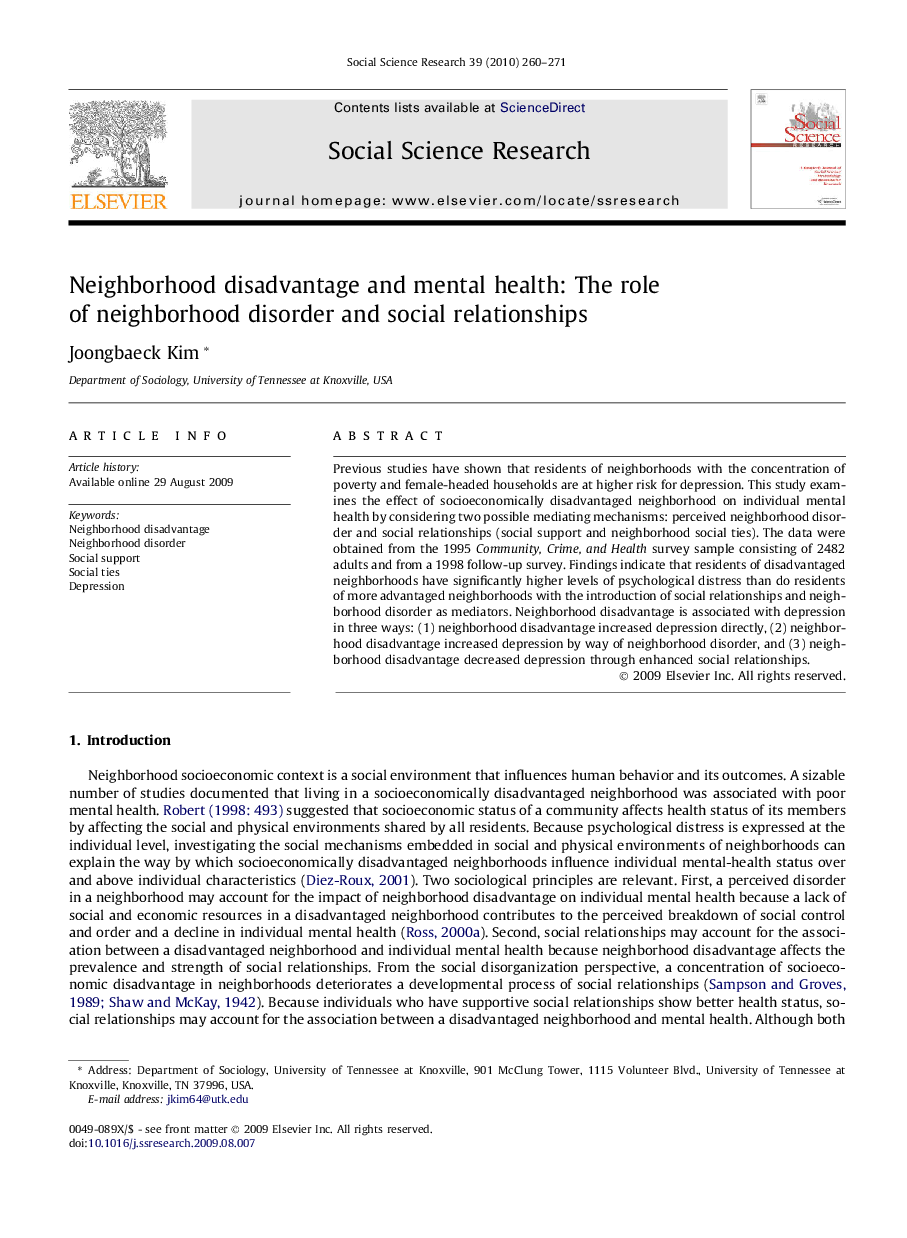| Article ID | Journal | Published Year | Pages | File Type |
|---|---|---|---|---|
| 956366 | Social Science Research | 2010 | 12 Pages |
Previous studies have shown that residents of neighborhoods with the concentration of poverty and female-headed households are at higher risk for depression. This study examines the effect of socioeconomically disadvantaged neighborhood on individual mental health by considering two possible mediating mechanisms: perceived neighborhood disorder and social relationships (social support and neighborhood social ties). The data were obtained from the 1995 Community, Crime, and Health survey sample consisting of 2482 adults and from a 1998 follow-up survey. Findings indicate that residents of disadvantaged neighborhoods have significantly higher levels of psychological distress than do residents of more advantaged neighborhoods with the introduction of social relationships and neighborhood disorder as mediators. Neighborhood disadvantage is associated with depression in three ways: (1) neighborhood disadvantage increased depression directly, (2) neighborhood disadvantage increased depression by way of neighborhood disorder, and (3) neighborhood disadvantage decreased depression through enhanced social relationships.
